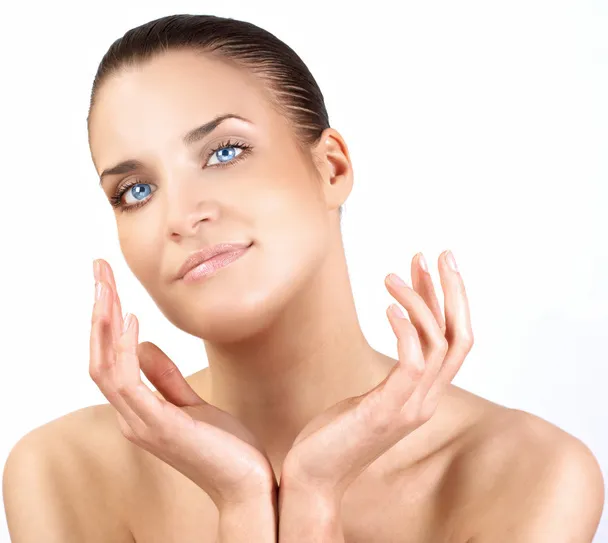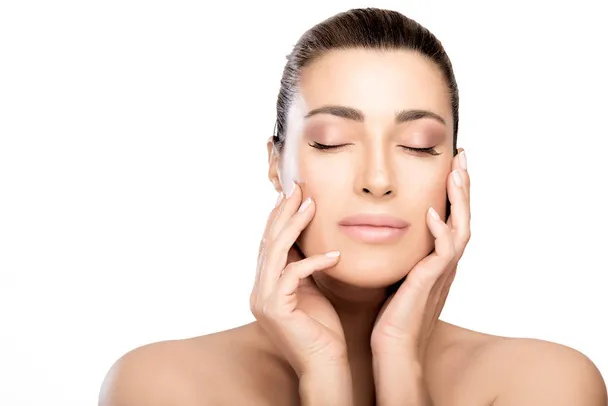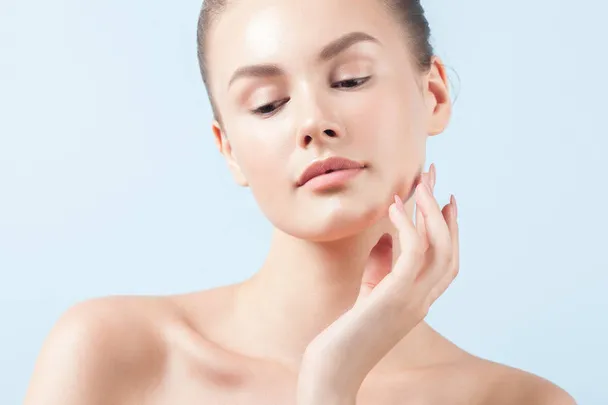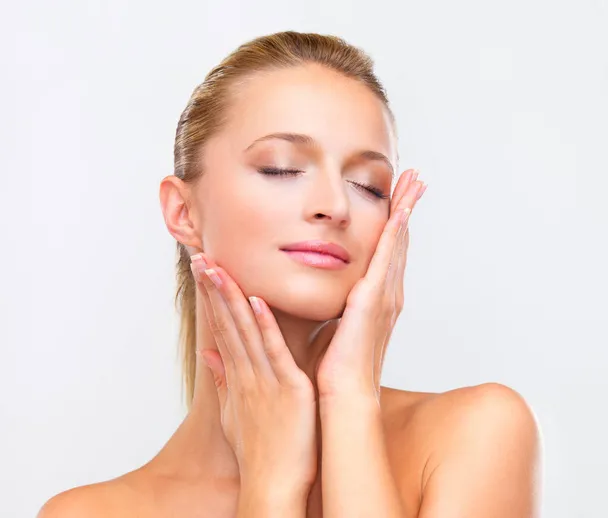Excessive Oil Production:
Excessive oil production, also known as sebum overproduction, is a common factor contributing to acne formation, particularly in areas of the face known as the T-zone, including the nose, forehead, and chin. Sebaceous glands located within the skin produce sebum, an oily substance that helps keep the skin hydrated and protected. However, when these glands produce an excessive amount of sebum, it can lead to various skin issues, including clogged pores and acne.
The nose, being part of the T-zone, is particularly prone to oiliness due to the high density of sebaceous glands in this area. When the production of sebum becomes excessive, it can overwhelm the pores, leading to blockages. These blockages can trap dead skin cells, bacteria, and other impurities within the pores, resulting in the formation of acne lesions such as blackheads, whiteheads, or pimples.
Furthermore, the excess oil on the surface of the skin can act as a magnet for dirt and bacteria, further aggravating the problem. When dirt and bacteria come into contact with the oily skin, they can become trapped within the pores, leading to inflammation and the development of acne.
To address excessive oil production and reduce the risk of acne formation on the nose and other areas of the face, it’s important to adopt a comprehensive skincare routine tailored to controlling oiliness. This may include:
- Gentle Cleansing: Regularly cleanse the face with a gentle cleanser specifically formulated for oily or acne-prone skin. Cleansing helps remove excess oil, dirt, and impurities from the skin’s surface, preventing pore blockages.
- Non-Comedogenic Products: Use skincare and cosmetic products labeled as non-comedogenic, meaning they are less likely to clog pores and exacerbate acne.
- Oil-Control Products: Incorporate oil-control products, such as mattifying moisturizers or blotting papers, to help manage shine and reduce excess oil throughout the day.
- Exfoliation: Regular exfoliation with a gentle exfoliant can help remove dead skin cells that can contribute to pore blockages. However, avoid over-exfoliating, as this can strip the skin of its natural oils and lead to increased oil production.
- Hydration: Despite having oily skin, it’s important to maintain proper hydration by using a lightweight, oil-free moisturizer. Dehydrated skin can actually stimulate the sebaceous glands to produce more oil, exacerbating oiliness and acne.
- Balanced Diet: Consuming a balanced diet rich in fruits, vegetables, whole grains, and lean proteins can help support overall skin health. Avoiding excessive consumption of sugary, greasy, and processed foods may also help reduce oil production and acne flare-ups.
Clogged Pores: Clogged pores, a common precursor to acne development, occur when dead skin cells and excess oil accumulate within the pores, resulting in blockages. This accumulation often happens in areas such as the nose, where oil production is higher due to the presence of sebaceous glands. The combination of dead skin cells and oil forms a plug within the pore, obstructing its normal function. Consequently, bacteria trapped within the pore multiply rapidly in this environment, leading to inflammation. The inflammatory response triggered by bacterial proliferation manifests as various types of acne lesions, including pimples, blackheads, or whiteheads, particularly on the nose. Thus, addressing clogged pores is crucial in preventing and managing acne breakouts.
Hormonal Changes: Hormonal changes play a significant role in the development of acne, including nose acne. Fluctuations in hormone levels, such as those experienced during puberty, menstruation, pregnancy, or menopause, can have a profound effect on the activity of the sebaceous glands. When hormone levels fluctuate, particularly increases in androgens (male hormones) such as testosterone, it stimulates the sebaceous glands to produce more oil (sebum). This heightened oil production can lead to oily skin, clogged pores, and acne breakouts, including on the nose. The excess oil produced during hormonal fluctuations provides an ideal environment for the proliferation of acne-causing bacteria, leading to inflammation and the formation of acne lesions. Therefore, understanding and managing hormonal changes are essential in addressing nose acne effectively.
Poor Skincare Habits: Poor skincare habits can significantly contribute to nose acne by allowing the accumulation of dirt, oil, and dead skin cells on the skin’s surface. Neglecting proper skincare practices, such as inadequate cleansing or using harsh products, can exacerbate this buildup, leading to clogged pores and acne breakouts.
Inadequate cleansing fails to effectively remove dirt, oil, and impurities from the skin, allowing them to accumulate over time. When these substances mix with natural oils produced by the skin, they can form a layer of buildup that clogs pores. This buildup not only obstructs the pores but also provides a breeding ground for acne-causing bacteria.
Using harsh skincare products, such as abrasive scrubs or overly drying cleansers, can strip the skin of its natural oils and disrupt its protective barrier. This can trigger the skin to produce more oil in an attempt to compensate for the loss, leading to further congestion of the pores.
Additionally, poor skincare habits may involve neglecting to moisturize the skin adequately. Contrary to popular belief, even oily skin needs hydration to maintain its balance. Failing to moisturize properly can result in dehydrated skin, which may stimulate the sebaceous glands to produce more oil, worsening acne.
Unhygienic Habits: Unhygienic habits can significantly contribute to acne flare-ups, including those on the nose, by introducing bacteria and impurities onto the skin. Touching the nose with dirty hands or resting the face on dirty surfaces can transfer bacteria, dirt, and other contaminants onto the skin’s surface, leading to clogged pores and acne breakouts.
When hands come into contact with various surfaces throughout the day, they can pick up bacteria and other pathogens. Touching the nose with unwashed hands can transfer these microbes onto the skin, where they can proliferate and contribute to acne development. Additionally, resting the face on dirty surfaces, such as dirty pillows or cell phones, can introduce bacteria and impurities onto the skin, further increasing the risk of acne flare-ups.
Moreover, using dirty makeup brushes or sharing personal items, such as towels or skincare tools, can also transfer bacteria and exacerbate acne. Makeup brushes that are not cleaned regularly can harbor bacteria, oil, and dead skin cells, which can then be deposited onto the skin during makeup application, potentially leading to clogged pores and acne breakouts. Similarly, sharing personal items with others can transfer bacteria and impurities onto the skin, increasing the risk of acne flare-ups.
Dietary Factors: Dietary factors can play a significant role in acne development, with some studies suggesting that certain dietary habits may exacerbate acne symptoms, including nose acne, in some individuals. Consuming a diet high in refined carbohydrates, sugary foods, dairy products, and saturated fats has been implicated as potential contributors to acne breakouts.
Refined carbohydrates, such as white bread, pasta, and sugary snacks, have a high glycemic index, meaning they can cause rapid spikes in blood sugar levels. These spikes stimulate the production of insulin and insulin-like growth factor 1 (IGF-1), which can in turn increase sebum production and trigger inflammation in the skin. This process can exacerbate acne symptoms, including the formation of pimples, blackheads, or whiteheads on the nose.
Similarly, high consumption of sugary foods and beverages can lead to elevated blood sugar levels and insulin resistance, which have been associated with an increased risk of acne. Additionally, sugary foods can promote inflammation in the body, further contributing to acne development.
Dairy products, particularly those high in hormones such as cow’s milk, have also been linked to acne breakouts in some individuals. Milk contains hormones and growth factors that can stimulate the sebaceous glands to produce more oil, leading to clogged pores and acne. Furthermore, dairy products may also contain components that promote inflammation in the body, exacerbating acne symptoms.
In addition to refined carbohydrates, sugary foods, and dairy products, diets high in saturated fats, found in foods like red meat and fried foods, have also been associated with an increased risk of acne. Saturated fats can promote inflammation in the body and may influence hormone levels, potentially worsening acne symptoms.
While the relationship between diet and acne is complex and varies among individuals, adopting a balanced and nutritious diet may help improve overall skin health and reduce the risk of acne breakouts. Incorporating plenty of fruits, vegetables, whole grains, and lean proteins into the diet, while limiting intake of refined carbohydrates, sugary foods, dairy products, and saturated fats, may benefit individuals prone to acne, including nose acne. However, it’s essential to consult with a healthcare professional or dermatologist for personalized dietary recommendations and to determine the most appropriate acne management approach for individual needs.
To effectively manage and prevent nose acne, consider the following tips:
- Cleanse Regularly: Use a gentle cleanser to wash your face twice daily, especially after sweating or wearing makeup, to remove excess oil, dirt, and impurities from the skin.
- Avoid Touching Your Face: Refrain from touching your nose or picking at acne lesions to prevent the spread of bacteria and inflammation.
- Moisturize: Use a non-comedogenic moisturizer to keep the skin hydrated without clogging pores.
- Use Acne-Fighting Ingredients: Incorporate skincare products containing ingredients such as salicylic acid, benzoyl peroxide, or retinoids to help unclog pores and reduce acne-causing bacteria.
- Maintain a Healthy Diet: Consume a balanced diet rich in fruits, vegetables, whole grains, and lean proteins while minimizing intake of processed foods and sugary snacks.
- Manage Stress: Practice stress-reduction techniques such as mindfulness, meditation, exercise, or hobbies to help alleviate stress and minimize its impact on acne.
- Consult a Dermatologist: If over-the-counter treatments are ineffective or if acne is severe, consult a dermatologist for personalized treatment options, which may include prescription medications or professional procedures.
By addressing the underlying causes of nose acne and adopting a comprehensive skincare routine, you can effectively manage and minimize acne breakouts for clearer, healthier skin.









